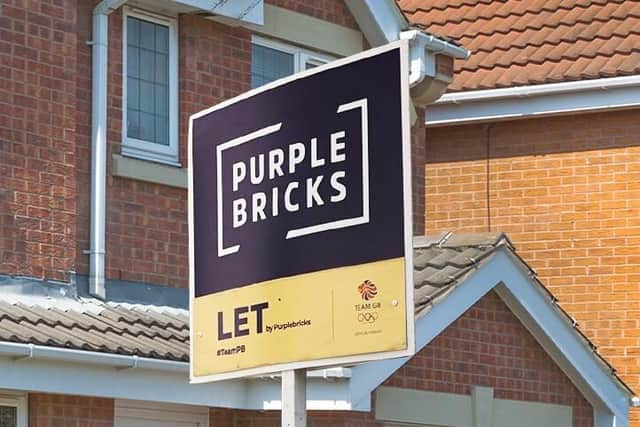Fears over growing Cost of Living crisis as thousands in Northamptonshire find Universal Credit comes up short over paying rent
and live on Freeview channel 276
Thousands of private tenants in Northamptonshire who rely on Universal Credit do not get enough cash to cover their rent.
Official data shows that as many as six in ten of the 14,380 private tenants receiving support have shortfalls of around £105 a month.
Advertisement
Hide AdAdvertisement
Hide AdIt has led to calls from the National Residential Landlords Association (NRLA) for Chancellor of the Exchequer Rishi Sunak to step in and avoid renters piling up debts as the cost of living crisis grows.


Teresa Kaczmarek, East Midlands Spokesperson for the NRLA, said: “The benefits system fails to provide renters and landlords across the East Midlands with the security they need.
“It cannot be right that housing benefit support fails to reflect the reality of current rent levels. The freeze merely exacerbates the already serious cost of living crisis for tenants across the region.
“The Chancellor needs to listen and respond to the concerns of both renters and landlords by unfreezing housing benefits as a matter of urgency.”
Advertisement
Hide AdAdvertisement
Hide AdFigures from the Department of Work and Pensions in November 2021 showed 3,822 out of 7,252 claimants in West Northamptonshire have rent shortfalls.
The situation is even worse in North Northamptonshire where 4,408 people out of 7,128 — 61.8 percent do not get enough cash to cover their rent.
Local Housing Allowance is used to calculate how much tenants can receive to support housing costs as part of a Universal Credit payment.
In response to the Covid-19 pandemic the Government increased the allowance in April 2020 so that it covered the bottom 30 percent of private rents in any given area.
Advertisement
Hide AdAdvertisement
Hide AdIn April last year the rate was frozen in cash terms and remains frozen in 2022-23.
The NRLA claims that as a result of the freeze, the link between local rent levels and the amount of housing benefit support received has been broken.
It says this means the number of properties that private renters receiving Universal Credit can afford is likely to steadily decline — despite rents across the East Midlands having increased by less than inflation.
